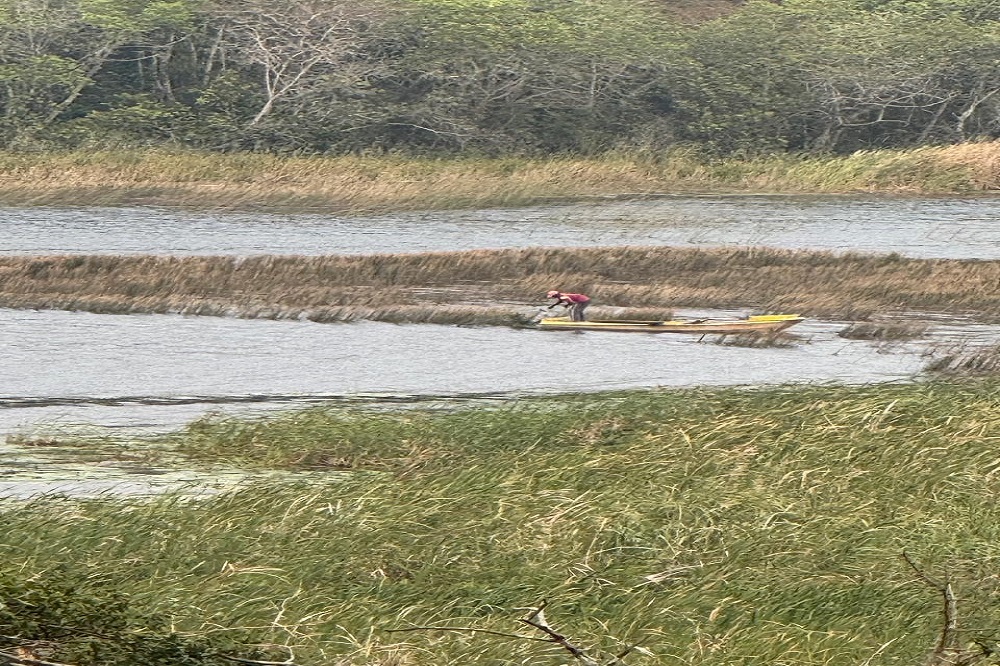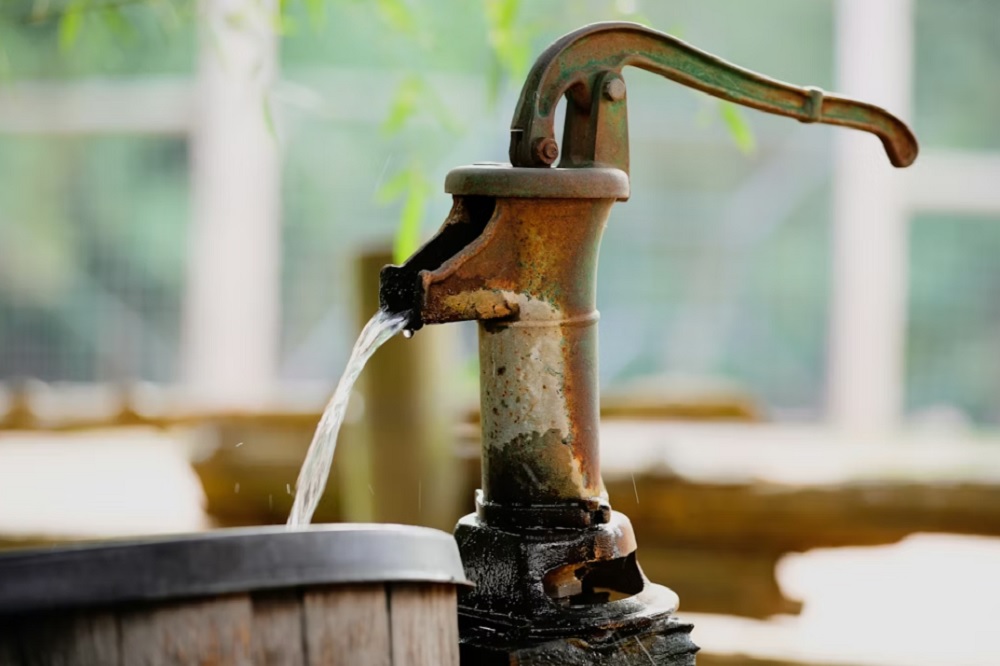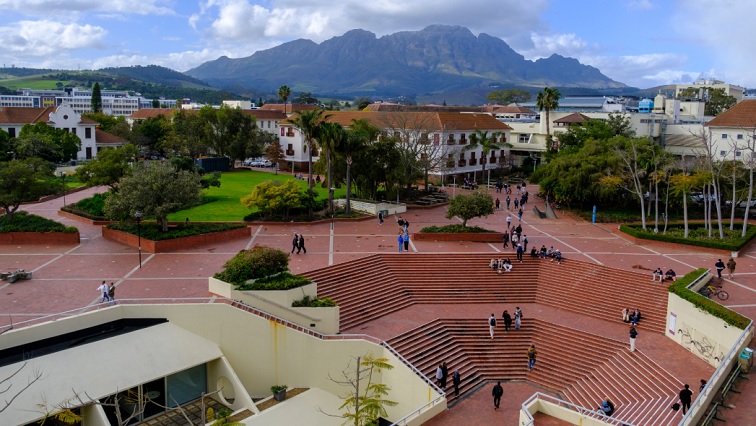-
Local resident fishing illegally with a gillnet on the Ngobezeleni lake system.
The iSimangaliso Wetland Park in KwaZulu-Natal (KZN) is considered one of the country’s conservation jewels.
A large number of indigenous communities live in and around the park and are considered to be among the poorest in the country.
They have been fishing from these lakes and the ocean for generations, but this is now strictly regulated, as it’s a marine protected area.
However, locals continue to fish illegally, using mainly gillnets, which have also been banned.
With law enforcement agencies stretched thin, the fish population is continuing to decline.
The Ngobezeleni lake system, which flows into the Indian Ocean is taking strain.
It is one of four interconnected lakes in the iSimangaliso Wetland Park.
It forms part of the Unesco World Heritage Site and is renowned for its diverse bird and wildlife.
It also has a dark side, with locals who practice subsistence fishing in the park. They use gillnets, which are illegal.
The use of gillnets has largely been banned in the country because of the high level of bycatch and damage they create to ecosystems.
Related video | Illegal fishing threatens Sodwana Bay livelihoods:
A retired Section Ranger in KZN, Johan Gerber, says this is a historic problem, “The gill netting, as far as I could make out, started either the very late 60s or early 1970s. I came into the area in 75-76, and it was in full swing. My old comrade in arms Dick Nash two of us used to go out at night with an 18-foot jet boat and we would load up so many nets that we had so much freeboard, and we would just waddle along to the shoreline, dump them and going back to get some more. It was phenomenal. We plugged away until we had it under control. Then somebody in our head office had this brilliant idea that if we legalise the netting to a degree, then all this work and going out at night and having confrontations, all that will go away. They got a scientist from the Oceanographic Research Institute (ORI), and he had to work out a framework of what can be done and what is sustainable.”
As soon as it became clear what damage the use of gillnets was causing, they were once again banned.
Gerber explains it was clear that the permit system for the use of gillnets was misused and that the system was corrupt, “So gradually the noise started getting louder and eventually, through marine and coastal management in Cape Town it was agreed that this must be phased out. It took a little bit of tears, but eventually it was phased out as a total failure. We’re back now to anybody who uses a gillnet is breaking the law and if we see the net, we remove it, or we should.”
Now you can apply for a special permit to use a gillnet – but you have to adhere to very strict rules.
Sodwana Bay residents told the SABC that fish stocks in this lake have been grossly over-fished and they have not seen any fishermen here for quite some time.
In the middle of our interview, however, a bright yellow boat appears on the lake.
Inside is a lone fisherman, who quickly rows to a nearby reed bed and starts pulling out his net.
He is angered by the cameras and microphones from the SABC, but seemingly not scared that law enforcement might catch up with him.
Related video| Kosi Bay resident up in arms over unregulated fishing:
Mthandeni Mthembu of the Isimagaliso Wetland Park’s conservation unit admits that the fish population in the ocean and lakes is taking strain, “I think it is because of these illegal activities, especially the destructive method, which is gill netting, which poses a very serious risk in our lake and marine system. These gillnets target these very small fish that are still growing and once they get disturbed, then it means the whole ecosystem will get disturbed.”
Mthembu says that they do act against lawbreakers but try not to alienate the residents by acting too harshly.
He says that they should also consider the socio-economic conditions of those who poach, “Our primary concern should not just be to rush into arrest, because sometimes their background is not nice, and they are really depending on these natural resources. You also must understand that these natural resources should not be exploited.”
Gerber, however, feels that this seemingly soft approach by authorities is not effective in stopping people from over-fishing the lakes in this marine protected area.
“At this stage, very little law enforcement is being done. A person who is trying very hard to police the matter says he goes out probably about five to ten nights a month. It has started slowing down in some months to about five or six days, which is a good indication that it is having an effect. From what I understand, they have been told that they may not remove the boats; they can only take the gillnets. This is a problem because the boats are illegal. They don’t conform to any regulation, which is a requirement if you want to go onto the water. Now the question arises, who gives authority to people to break the law, because that is an offence. So, I say to you, you can take that illegal boat of yours, go out onto the water and do what you want to do. I’m committing an offence. I think the biggest resource is political will. If those higher up as well as those on the ground, we just decide enough is enough, we cannot let this place go down any further.”
This story was supported by the Pulitzer Centre.











